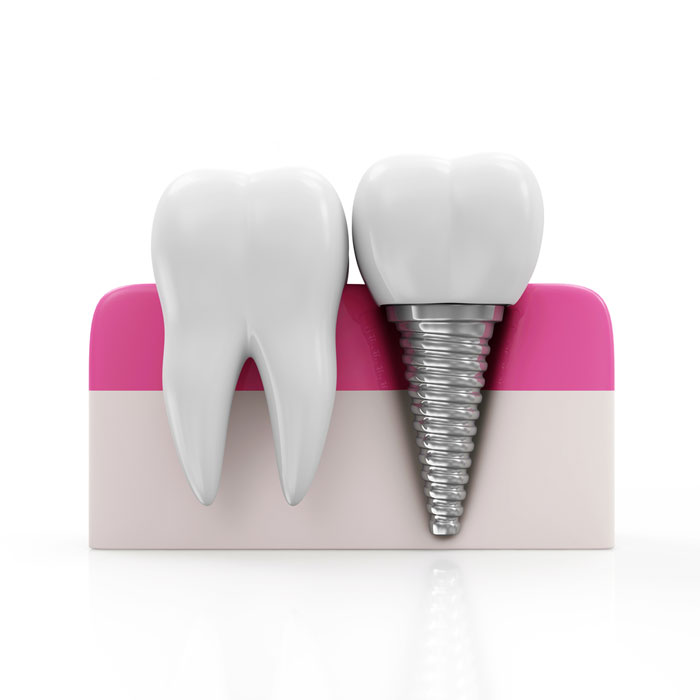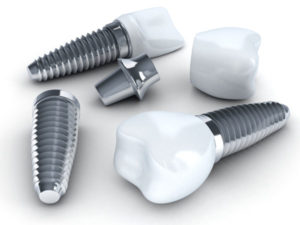Improved oral health
Conventional dentures sit on top of the gums, which can increase the risk of developing gum disease and additional issues. Traditional bridges require alteration of the natural teeth, which can increase your risk of tooth decay and additional issues in those teeth.
Dental implants protect jawbone health because they are placed in the jawbone. In addition, since they are inserted in the jawbone, you don’t have to worry about bacteria collecting on the gums/teeth because you can brush and floss just like your natural teeth.
Durability
Both conventional dentures and dental bridges must be replaced from time to time. Most bridges will last about 5 to 7 years, maybe longer with proper care and maintenance. On the other hand, conventional dentures must be replaced or relined every 10 to 15 years, maybe longer.
Dental implants, however, last a lifetime. Depending on your care and maintenance habits, the crown/artificial teeth may need to be replaced in about 15 to 20 years, but may last longer depending on your oral care habits.
Aesthetics/natural appearance
Conventional dentures and bridges often look artificial due to the way they sit on the gums and in the mouth. Dental implants, on the other hand, are inserted into the jawbone, so they look like natural teeth.
Comfort
Conventional dentures slip and slide around on the gums, which can cause pressure and friction sores to form. Bridges require alteration of the neighboring teeth on each side of the gap, which can cause issues with those teeth later on. Dental implants, on the other hand, are inserted in the jawbone, so they feel like natural teeth.
Convenience
Conventional dentures and some bridges are removable. This means that they must be taken out and cleaned every night before going to bed. Cleaning requires carefully brushing them and then placing them in a container with denture cleanser. This takes time and you risk dropping and breaking them.
Dental implants do not require additional special care. You simply brush and floss like you normally would.



